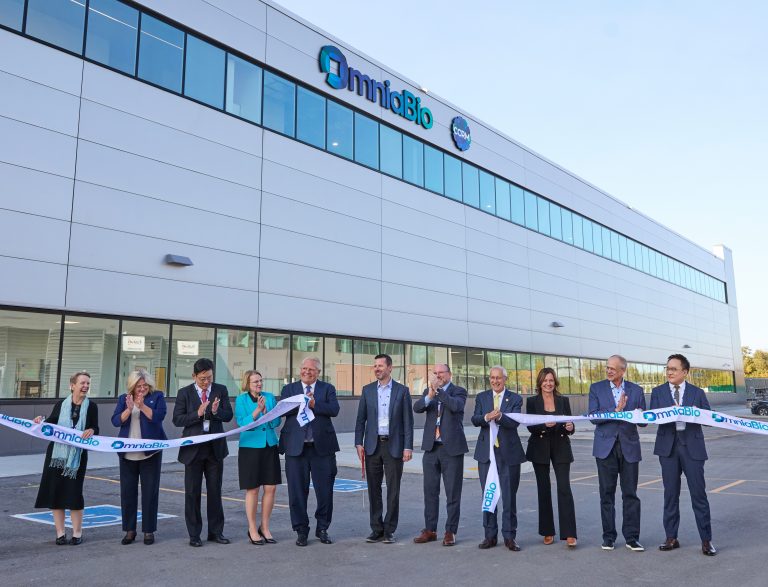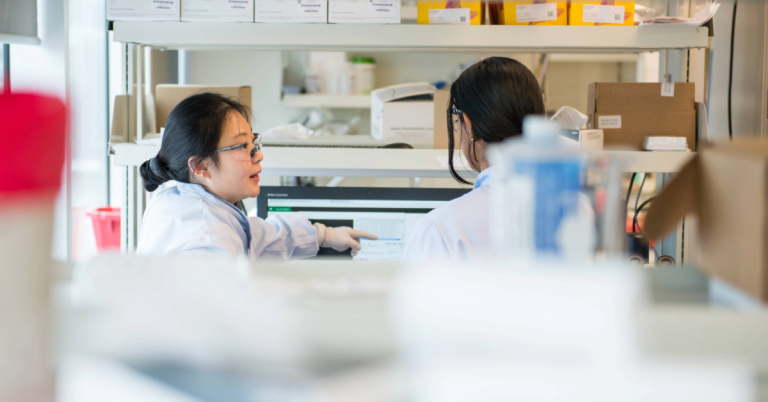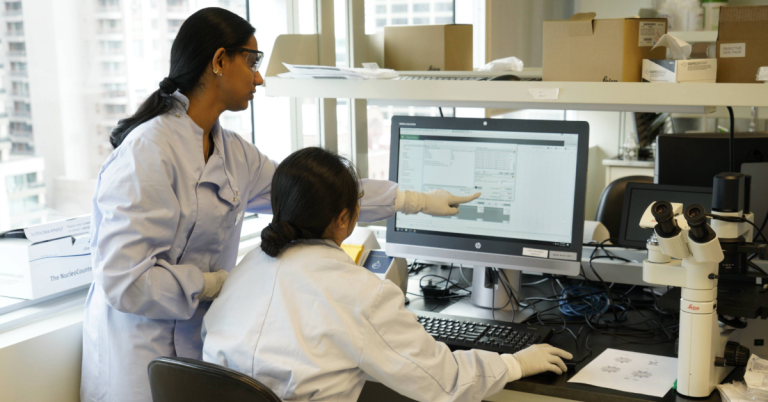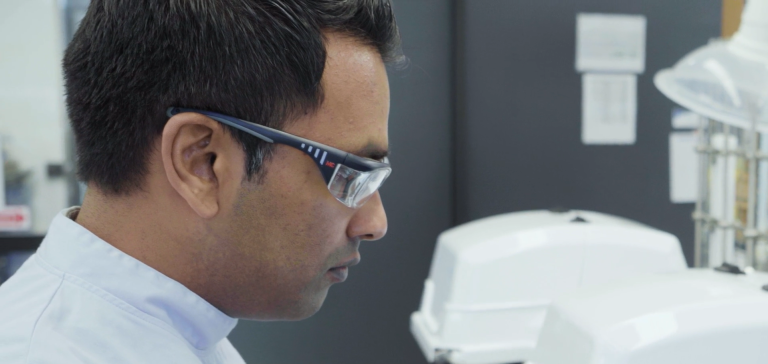In this blog post, we highlight key considerations for analytical and quality control (QC) testing of cell and gene therapy (CGT) products.
February 13, 2024
| OmniaBio
Developing an Analytical Development Strategy for Immunotherapy
Cell and gene therapies are groundbreaking approaches to medicine, offering potential cures for previously untreatable diseases. Successful development and commercialization of these innovative therapies rely heavily on robust analytical techniques. Analytical development is foundational to any cell and gene therapy process or product. Analytical Development (AD) addresses product characterization, manufacturing consistency, product release and stability, and process/product comparability. In this blog post, we highlight key considerations for analytical and quality control (QC) testing of cell and gene therapy (CGT) products.
Consideration 1: Assay Development
By establishing reliable and sensitive assays, CGT developers can gain a comprehensive understanding of a product’s attributes and assess its performance throughout the development process. Assay development involves design, optimization and validation of analytical methods to measure critical quality attributes (CQAs) such as identity, purity, potency and safety of the drug product or drug substance. These assays encompass various biochemical techniques (enzyme linked immune-sorbent assays), immunological characterization (flow cytometry, live cell imaging, microscopy), molecular techniques (polymerase chain reaction, next generation sequencing) and biophysical methods (dynamic light scattering). ICH guidelines (ICH Q2 R1) may be used as a resource throughout assay development to consider key elements or recommendations for assay performance and ensure a smooth transition toward validation.
Consideration 2: Phase-appropriate Analytical Methods
As CGT products progress through different stages of development, the associated analytics must also evolve from “fit-for-purpose” methods to validated test methods. Early phase (preclinical and Phases I/II) assays focus on characterization, feasibility and proof-of-concept, whereas late-stage assays (Phase III and commercial) emphasize refined assays for process control, product release and stability. It is important to develop a scientifically sound method that meets the desired analytical target profile during the method development phase. The intended use of the method could be an in-process test or a final release test in which case method transfer to QC is essential. A method pre-qualification stage may sometimes be performed during technology transfer using non-Good Manufacturing Practices test material to assess feasibility and de-risk the method.
Method qualification relates to the robustness of a fit-for-purpose method. Qualified assays ideally require pre-defined acceptance criteria, but flexibility is acceptable. During this stage method specificity, range, linearity and precision should be characterized. Method verification is often performed to ensure that a compendial method is performing as intended. Method validation is performed on final release products and the method must meet strict acceptance criteria as per ICH Q2 (R2) guidelines.
CGT products represent some unique challenges, especially during the development of a potency strategy, due to the inherent complexity of these medicines. In early phases of development, there will be limited information on both the mechanism(s) of action (MOA) of the drug, and the robustness of the manufacturing process. Health authorities recognize this limitation and advise sponsors to develop a holistic and orthogonal potency assay strategy, which builds the body of product and process information that will be critical in later phases, when a potency package that reflects all of the product’s MOAs will be needed for release.
The data accumulated in early phases of development will help to establish meaningful acceptance criteria for potency as the product proceeds through development. An example of this is the requirement to demonstrate the identity of CAR-T cells for Phase I products, whereas Phase II products require a potency assay reflecting the MOA of CAR-T cells. Assay validation criteria for advanced clinical studies include range, linearity, specificity, sensitivity and precision. For products in commercialization, analytical methods are employed to monitor product quality and stability.
By implementing a strategic approach for phase-appropriate assays, developers can accelerate the overall development timeline with reduced costs. AD also helps identify potential issues early in the development process and enables timely troubleshooting and risk mitigation. Most importantly, this facilitates smooth regulatory submissions and approvals.
Consideration 3: Quality Control Testing
Fit-for-purpose assays must move from AD to rigorous QC testing to ensure that product specifications are met. QC release testing panels include tests for product safety, identity, strength/potency, purity and quality. Commercialization-enabling studies also include stability tests and raw material qualification. Stability studies are crucial for assessing the shelf life and storage conditions of CGT products. These studies involve monitoring a product's physical, chemical and biological attributes over time to determine its stability profile. Additionally, raw material qualification ensures that all components used in the manufacturing process meet predefined specifications and are of a consistent quality. Comparability studies may be needed in case of deviations in critical materials or processes.
OmniaBio: Supporting your Company’s Analytical Development Strategy
Collaborating with an experienced contract development and manufacturing organization (CDMOs) with dedicated AD and QC teams can greatly enhance the analytical capabilities of CGT developers, enabling them to navigate the complex CGT landscape and translate promising treatments into the clinic. AD efforts in CGT should focus on process analytical technologies, the introduction and expansion of in-line automation, and the incorporation of artificial intelligence to optimize workflows and data analysis. Further, the implementation of Analytical Quality by Design offers a systematic and robust approach to the development of analytical procedures at all stages of product development.
Specializing in all the above aspects of analytical development, OmniaBio Inc. is a trusted global CDMO partner that can help bring maturity to your program. To learn more about OmniaBio’s CGT analytical services and broader CDMO capabilities, or to request a consultation with one of our experts, please visit our website here.
About The Author
Shivali Joshi, Development Manager, CGT Analytical Development, OmniaBio
Shivali is a development manager in the process sciences & analytical development team at OmniaBio. She and her team are focused on analytical development for immunotherapy, viral vector, and other bioprocess platforms. Her expertise spans from assay development to validation for cell-based assays. She has previously developed T cell immunity surveillance assays for a Hepatitis B vaccine phase IV clinical trial sponsored by GlaxoSmithKline during her post-doctoral training at the University of Calgary. Prior to joining OmniaBio, she worked at a start-up point-of-care diagnostics company in Toronto where she successfully developed T cell-based assays & molecular tests to test utility of the company’s alpha system on prototype virological and bacterial diagnostic assays.
Related Content
Loading...




